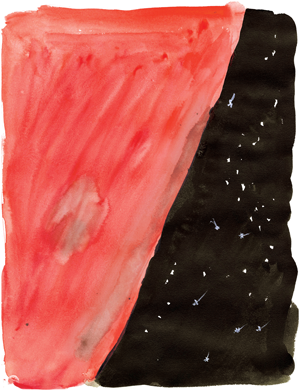Initiatives by the International Committee of the Red Cross for the Elimination of Nuclear Weapons
Shoko Hanzawa
Head of Delegation in Japan for the International Committee of the Red Cross (ICRC)

Shoko Hanzawa
Head of Delegation in Japan for the International Committee of the Red Cross (ICRC)
The ICRC's efforts to abolish nuclear weapons date back to 1945.
On August 29, 1945, Fritz Bilfinger was the first foreign delegate of the ICRC to enter the A-bombed Hiroshima.
The next day, he sent a telegram to the ICRC Delegation in Tokyo, informing them of the dire situation on the ground and requesting immediate assistance.
In response, Marcel Junod, who had just arrived as Head of Delegation in Japan, formed a rescue team.
Bilfinger's telegram read,
"VISITED HIROSHIMA THIRTIETH
CONDITIONS APPALLING STOP
CITY WIPED OUT
EIGHTY PERCENT ALL HOSPITALS DESTROYED OR SERIOUSLY DAMAGED
INSPECTED TWO EMERGENCY HOSPITALS
CONDITIONS BEYOND DESCRIPTION FULLSTOP
EFFECT OF BOMB MYSTERIOUSLY SERIOUS STOP
MANY VICTIMS APPARENTLY RECOVERING SUDDENLY SUFFER FATAL RELAPSE DUE TO DECOMPOSITION OF WHITE BLOODCELLS AND OTHER INTERNAL INJURIES
NOW DYING IN GREAT NUMBERS STOP
ESTIMATED STILL OVER ONEHUNDREDTHOUSAND WOUNDED
IN EMERGENCY HOSPITALS LOCATED SURROUNDINGS SADLY LACKING BANDAGING MATERIALS MEDICINES STOP"
The following sentence is from the end of The Hiroshima Disaster written by Junod, who, following Bilfinger, saw the devastation of Hiroshima with his own eyes:
"In conclusion, for someone who was a witness, albeit one month later, of the dramatic consequences of this new weapon, there is no doubt in his mind that the world today is faced with the choice of its continued existence or annihilation."
Shortly after the world's first use of the atomic bomb, the ICRC expressed its clear stance against nuclear weapons and communicated to Red Cross and Red Crescent Societies across the globe the view that nuclear weapons should be eliminated.
This stance has never wavered and continues to the present day.
However, the debate over nuclear weapons has traditionally been dominated by security and geopolitical arguments, and nuclear weapons were seen as a useful tool to ensure national and regional security and to maintain geopolitical balance.
Against this backdrop, on April 20, 2010, just prior to the 2010 NPT Review Conference, Jacob Kellenberger, then President of the ICRC, referring to the indescribable human suffering and threat to the very existence of humanity posed by the use of nuclear weapons, stated that the use of nuclear weapons would generally be contrary to the principles and rules of international humanitarian law and called on nations to put an end to the era of nuclear weapons for the interests of humanity.
Following this ICRC statement, the Red Cross Movement adopted a resolution reaffirming its long-standing and consistent position on nuclear weapons and calling on states to work toward their abolition, along with a 4-year action plan.
Subsequently, the concept of a humanitarian approach to nuclear weapons gained momentum, which led to the adoption and entry into force of the Treaty on the Prohibition of Nuclear Weapons, which will lead humanity toward a world without nuclear weapons.
We are concerned that in response to the recent global situation, there are continued threats of the use of nuclear weapons and that there is an increasing focus on nuclear weapons once again.
The bomb that was dropped on Hiroshima in 1945 and killed about 140,000 people by the end of that year had a nuclear output of 15 kilotons, but today, it would be classified as a small nuclear weapon.
No country or international organization is capable of meeting the enormous humanitarian needs, saving lives, that would result from the use of nuclear weapons.
The only way to prevent what cannot be addressed or dealt with is to prevent it from happening, and the only way to prevent nuclear weapons from being used again is to abolish them.
The Treaty on the Prohibition of Nuclear Weapons will play an indispensable role in achieving this goal.
The ICRC will continue to urge all States to sign and ratify this important treaty.
The ICRC Delegation in Japan is also focusing its efforts on initiatives to achieve the abolition of nuclear weapons.
One such initiative is the empowerment of young people.
Keita Takagaki, a native of Hiroshima, is passionate about working for the abolition of nuclear weapons with the belief that this mission was entrusted to him by his two great-grandfathers who were involved in atomic bomb relief efforts in Hiroshima and Nagasaki.
He has also participated in the past two meetings of the Conference of the Parties to the Treaty on the Prohibition of Nuclear Weapons as an ICRC Youth Representative and made significant contributions, such as reading the ICRC statement in front of government representatives and, of the youth participating at side events from around the world, he spoke out about the reality of the atomic bombings.
Through Mr. Takagaki's activities, I met many people in Hiroshima, one of whom is Chieko Kiriake, an atomic bomb survivor.
 My first encounter with her was a visit to the former Hiroshima Army Clothing Depot, an atomic-bombed building, in September 2021.
Ms. Kiriake, who lived with her family near the clothing depot, saw the night sky of Hiroshima after the atomic bomb was dropped, and it was divided into two parts: one side was bright red with burning flames, and the other side had beautiful stars.
There is one message that Ms. Kiriake always has:
"I think peace is in jeopardy.
If you let your guard down for a moment, it will escape from your grasp, just like a balloon.
So, we all need to hold it tightly and protect it so it doesn't get away."
Taking these important words from Ms. Kiriake, who experienced the A-bombing, to heart, the ICRC will continue to do its utmost to promote a humanitarian approach toward the abolition of nuclear weapons.
My first encounter with her was a visit to the former Hiroshima Army Clothing Depot, an atomic-bombed building, in September 2021.
Ms. Kiriake, who lived with her family near the clothing depot, saw the night sky of Hiroshima after the atomic bomb was dropped, and it was divided into two parts: one side was bright red with burning flames, and the other side had beautiful stars.
There is one message that Ms. Kiriake always has:
"I think peace is in jeopardy.
If you let your guard down for a moment, it will escape from your grasp, just like a balloon.
So, we all need to hold it tightly and protect it so it doesn't get away."
Taking these important words from Ms. Kiriake, who experienced the A-bombing, to heart, the ICRC will continue to do its utmost to promote a humanitarian approach toward the abolition of nuclear weapons.


"The night sky of August 6, 1945"
Drawn by Chieko Kiriake
Drawn by Chieko Kiriake

"The night sky of August 6, 1945"
Drawn by Chieko Kiriake
Drawn by Chieko Kiriake
(February 2024)
〔Shoko Hanzawa〕
Joined the ICRC in 2019; worked to promote humanitarian principles and international humanitarian law as Humanitarian Affairs Advisor to the Delegation in Japan.
Assumed position of Head of Delegation in Japan from June 2023.
Prior to the ICRC, worked in the field of humanitarian assistance for more than 10 years, including at the Ministry of Foreign Affairs of Japan and the Office of the United Nations High Commissioner for Refugees.
Hiroshima Peace Culture Foundation
1-2 Nakajima-cho, Naka-ku, Hiroshima 730-0811 JAPAN
Phone 082-241-5246
Copyright © Since April 1, 2004, Hiroshima Peace Culture Foundation. All rights reserved.